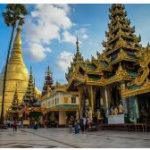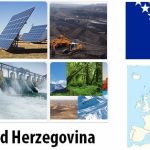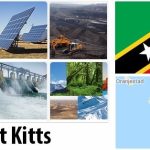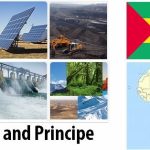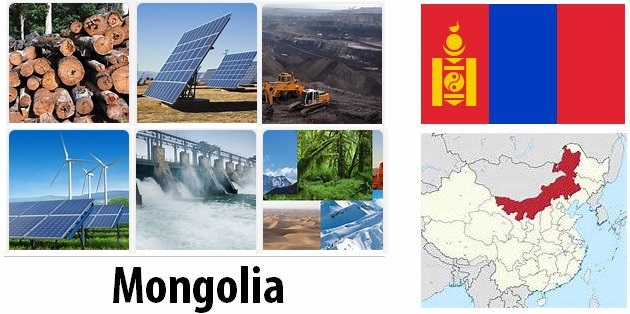Natural resources, energy and environment
With its fertile soil and its extensive forest and mineral resources, Myanmar could be a prosperous country. Half of the land area is covered by forest with teak as the most important type of wood. Among the mineral resources are oil, natural gas, coal, copper, tin, gold, silver, tungsten, iron, lead and zinc as well as precious stones such as sapphires, rubies and jade.
Activity in the state-owned mines was low for a long time due to lack of investment, but in the 2010s, investment has increased. However, some of the revenue from certain mines (mainly gemstones and jade) goes directly to the military through companies that the state does not have access to. Ethnic guerrilla groups also receive money from smuggling of gemstones, among other things. According to the World Bank, most of the gems are smuggled out of the country, which means that the state loses important tax revenue.
- COUNTRYAAH: Major exports by Burma with a full list of the top products exported by the country. Includes trade value in U.S. dollars and the percentage for each product category.
Myanmar has large reserves of oil and natural gas. The gas is offshore in the Bay of Bengal, while the oil is mainly pumped inland, southwest of Mandalay. In recent years, however, new oil fields have also been found at sea.
Natural gas is Myanmar’s most important export commodity. Major buyers of Myanmar gas are Thailand and China. Inefficient oil refineries, on the other hand, require the country to import gasoline and other petroleum products, a business which is largely controlled by companies with military ties. Also, some revenue from gas extraction will only benefit the military through special accounts outside government control.
- Abbreviationfinder: A popular acronym site in the world covering abbreviation for each country. For example, BM stands for Myanmar. Visit itypeusa for more information about Myanmar.
During the 2010s, foreign investment in the energy sector has increased substantially, primarily from China but also other countries. New fields are discovered and exploited in collaboration with foreign energy companies. One problem is that all activities are in principle done in collaboration with the state-owned company Myanma Oil and Gas Enterprise (Moge), notorious for corruption, lack of transparency and connections to the military.
Electricity is generated to three-quarters in hydroelectric power stations and to one-fifth in gas-fired thermal power plants. More than half the population had access to electricity in 2016. Lack of electricity is a major obstacle to the country’s economic development. Most companies are forced to use their own generators due to constant power outages. Myanmar has good opportunities to expand its hydropower even more, which is done in collaboration with China in particular.
The power plant construction leads to negative consequences for the environment. Large areas are being destroyed, which is a threat to both humans and animals. The power plant dams created in the Salween River have forced thousands of people to leave their homes. With the excavators also comes the military, which has a long history of serious abuse on local people. When the USDP government decided in 2011 to stop a Chinese-funded power plant construction, it was probably the first time the authorities have bowed to public opinion and environmental activists.
FACTS – ENERGY AND ENVIRONMENT
Energy use per person
361 kilos of oil equivalents (2014)
Electricity consumption per person
211 kWh, kWh (2014)
Carbon dioxide emissions in total
21 632 thousand tonnes (2014)
Carbon dioxide emissions per inhabitant
0.4 ton (2014)
The share of energy from renewable sources
61.5 percent (2015)
2013
December
Government: “no more political prisoners”
The government issues a comprehensive amnesty and claims that all political prisoners are now released. Human rights activists question the task.
NLD is running for election in 2015
The NLD announces that the party will run in the 2015 elections even if the constitution is not changed so that Aung San Suu Kyi can become president (see Political system).
August
More violence against Muslims
Violence targeting Muslims erupts in Kanbalu in central Myanmar, after police refused to extradite a Muslim man to a Buddhist crowd. The man is charged with attempted rape on a Buddhist woman. The mob burns down homes and shops belonging to the city’s Muslims. The Muslim man is later sentenced to seven years in prison.
July
More convictions fall for the violence in Meiktila
Twenty-three people are sentenced to prison for participating in riots between Muslims and Buddhists in Meiktila. The persons are convicted of, for example, murder, assault and arson.
May
Child restriction for Rohingy
In parts of Rakhine, an old rule is reintroduced that Muslim Rohingya may only have two children. The restriction does not apply to Buddhists.
Muslims are condemned for ethnic violence
Seven Muslims are sentenced to long prison terms following the outbreak of violence in Meiktila (see March 2013) between Buddhists and Muslims. The longest sentence of 34 years is punishable for the murder of a Buddhist monk.
April
Investigation wants to see more security forces in Rakhine
A government-appointed inquiry into the ethnic violence in Rakhine in 2012 is presented. Investigators state that 190 people were killed and about 100,000 became homeless in the two violence outbreaks in June and October 2012, respectively, between the Muslim minority Rohingya and Buddhists. The investigation recommends that the security forces in Rakhine be doubled and that the two groups should be kept apart for a period, but also admit that this should not be seen as a permanent solution to the problem.
The EU and the US lift more sanctions
The EU is lifting all trade and economic sanctions against Myanmar and individuals, for example in the country’s political leadership. However, the ban on arms sales remains. The United States retains some targeted sanctions because of concerns about the human rights situation, such as the violence in Rakhine and the country still holding political prisoners.
Privately owned newspapers are allowed
The USDP government announces that privately owned newspapers are now allowed. Myanmar has not had private newspapers since 1964. Four privately owned newspapers are starting to be published: The Union, The Voice, Standard Times and The Golden Fresh Land.
March
Ethnic related violence in central Myanmar
At least 50 people are killed in violence between Buddhists and Muslims in the city of Meiktila in central Myanmar. The unrest is spreading to surrounding cities, where several mosques are set on fire as well as hundreds of homes and shops owned by Muslims. An estimated 12,000 people are forced to flee, of which around 9,000 are Muslims. It is unclear how organized the violence is and who is responsible for the outbreak of violence, but most who are arrested are Buddhists. An emergency permit is introduced.
February
The President visits Europe
During his first European visit, Thein Sein meets both EU representatives and leaders of individual countries to strengthen Myanmar’s relations with the western world. The trip goes to Norway, Finland, Austria, Belgium and Italy.
January
Freedom of assembly is extended
The government abolishes the 1988 ban on public groups larger than five people in public place.


